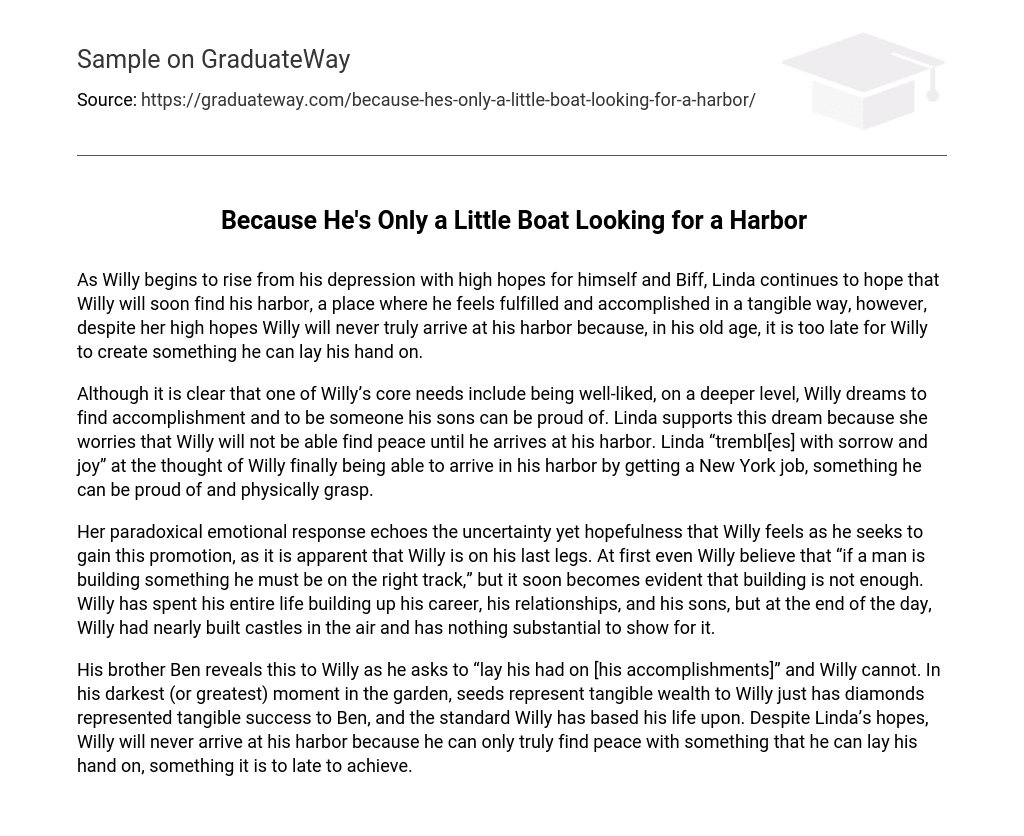While Willy starts to recover from his depression and remains optimistic about himself and his son Biff, Linda maintains her own hope that Willy will discover a sense of fulfillment and achievement in a tangible form, known as his harbor. Unfortunately, despite Linda’s optimism, Willy will never reach his desired harbor because he is too old to create something concrete that he can physically grasp.
It is evident that one of Willy’s main desires is to be liked, but on a deeper level, he also yearns for achievement and the ability to make his sons proud. Linda shares this dream because she fears that Willy will not experience true peace until he achieves his desired success. The thought of Willy finally finding his harbor by obtaining a New York job, something tangible and worthy of pride, fills Linda with both sadness and happiness.
The paradoxical emotional response of Willy mirrors the mix of uncertainty and hopefulness he experiences in his quest for the promotion. It is clear that Willy is in a desperate state. Initially, Willy shares the belief that “if a man is building something he must be on the right track.” However, it becomes apparent that mere building is insufficient. Throughout his life, Willy has devoted himself to building his career, relationships, and his sons. Yet, in the end, Willy has essentially been constructing illusions and has little to show for it.
Willy’s brother Ben informs him that he is unable to lay his hand on his accomplishments. This revelation occurs in Willy’s most significant moment in the garden. To Willy, seeds symbolize concrete wealth, just as diamonds symbolize tangible success to Ben. These ideals serve as the foundation for Willy’s life. Despite Linda’s optimistic aspirations, Willy will never reach his desired destination because true contentment can only be found in something tangible, and it is now too late for him to attain it.





